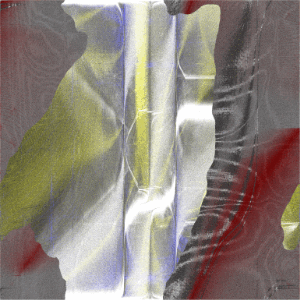Gabriel Weinstock caught up with Joseph Fraioli (aka Datach’i) and was able to speak to him about his new album System, the Eurorack modular format he used exclusively to record it, machine intelligence, monarch butterflies, and his inspirations in this feature.
System—an oddly comforting listen from start to finish
Datach’i‘s eagerly awaited new release System is a beautiful album from start to finish. Recorded entirely on a Eurorack modular synthesizer, Datach’i (Joseph Fraioli), has managed to coax unique sounds and rhythms out of the machine and continues to forge ahead with his Jafbox Studio founded to bring custom innovative sound design into all types of media.
For those unfamiliar with Fraioli’s prior work, his sound is akin to artists including Aphex Twin, Venetian Snares (on whose Timesig label the album is being released), and Richard Devine, yet uniquely his own.
I highly recommend anyone on the fence about purchasing this album to view the video available freely on Vimeo for the single “Monarchs,” which is a fascinating piece of music/performance art demonstrating the Eurorack and Datach’i coaxing futuristic and compelling sound out of it. An array of lights, buttons, and patch cords, it is truly drool worthy for any techno/electro fan, or anyone desiring to see where the early synth pioneers’ work has taken us. A Vimeo library can be found here.
A sound designer based out of Brooklyn, Fraiolo has created a masterpiece here that has become one of my favorite albums of the last five years. Those who mourn the death of the IDM genre should definitely check this out. Not only is it filled with creative energy, it is also an oddly comforting listen from start to finish.
Standout tracks include the single “Monarchs,” which recalls in its beat the electro-funk sounds of the mid 90’s, the haunting echoes and warm tones of “512521,” “Sick Face,” with its sine wave bass sounds, harmonic highlights, and an eerie synth pad that begins the track possessing a certain melancholy quality. “Waveguiding,” also a standout track, is an exercise in break core mixed with a luscious bass pad that lends an emotive element to the song.
I caught up with Fraioli and was able to speak to him about his new album System, the Eurorack modular format he used exclusively to record it, machine intelligence, monarch butterflies, and his inspirations in this feature.
Collaborating with a machine
 Let me start by saying I love the new album.
Let me start by saying I love the new album.
Joseph Fraioli :: Oh thanks.
I’ve listened to it a number of times, it’s one of my favorite albums of the last 5 years. It’s a refreshing album, I’ve been into IDM for a long time, but while I wouldn’t necessarily classify it as IDM, and it reminded me a little bit of Richard Devine and some of the early Schematic releases, it really has its own feel. My first question is, is this a concept album?
Joseph :: Um, not necessarily. It’s more about collaborating with this machine which is of course the Eurorack modular synthesizer, but beyond that, it’s more or less left open ended, for the listener to decipher. There is a story there, but it’s one for people to discover, not necessarily something so direct.
That brings me to my next question, which is, I was reading of your promo kit, and I saw that it mentioned AI (Artificial Intelligence.) I don’t know if you’re at all familiar with what’s going on with quantum computing?
Joseph :: Yeah, a little bit. Sure.
I was curious, you mentioned a bit about connecting with the machine, and I wondered whether you felt, and this will sound a little odd, that a machine could have a ‘soul’, in writing this album were you able to connect with the machine at an intimate level, was there any form of a ‘personality’ there, any form of a connection to the machine? I know that in quantum computing there are some edge ideas that the entire universe could be a gigantic quantum computer in and of itself, integrating concepts such as quantum entanglement (in which two subatomic particles, once connected will change state instantaneously based on one another no matter how far apart they are), was any of that on your mind at all while you were recording this?
Joseph :: Yeah absolutely. And I don’t know how much of that is you know, my imagination, and that’s how I want it to be, and that’s kind of everything, in a lot of ways. When something can be perceived as expressing an emotion, it’s really exciting, because it’s an inanimate machine, and it’s you know, the approach I take to working with the modular is very much a collaborate effort. I like to see it working, and have it making this music that is somewhat guided by my input but it’s really self generative in a lot of ways, so it’s this really weird mix of control and collaboration, and it’s really exciting.
So as you’re recording a song are you recording many takes to see what it’s doing, or are you letting it run and kind of tweaking the sequences, tweaking the sounds, how does that work?
Joseph :: You know, as with anything creative, I start messing around, and then my patches get sort of big and messy. Then what I do is sort of refine the patch to refine the elements that I want to control whether it’s just a few filter tweaks, the changing of parts of the music, or adding things and subtracting things, and letting the modular control other aspects of the track. So it’s just basically honing it down so it’s a performable piece within the modular.
I wouldn’t necessarily describe the album as sparse or necessarily stripped down, but there are certainly elements where I can very much see what you’re saying about adding and subtracting sounds as you’re going along. So, can you tell me a little bit, it was a Eurorack that you used exclusively to record this album?
Joseph :: Correct, yeah, the format of this modular system is the Eurorack format, which originally was produced I believe in 1995 by Dieter Deopfer, of Deopfer Modular, as a smaller 3U format of modules—and from there, it sort of grew, and many manufacturers nowadays, small companies, and some of the bigger companies such as Roland and so on are making modules for this format. But yeah, it’s relatively new and exciting and it’s sort of easy to design modules for, so its picked up a lot of popularity and it’s a somewhat affordable to put together a system that could be cool.
Is it analog?
Joseph :: It’s both analog and digital. And that’s what’s so great about it. There’s super powerful digital modules with now pretty much any kind of synthesis available with the exception of additive digital because it takes up so much power from the power supply. But, there’s granular, you have spectral processors, all sort of cool things coming out on the market, there’s new chips available to make even higher fidelity digital modules. Then there’s some awesome classic stuff too, analog filters and oscillators and different types of envelopes, there’s different kinds of analog envelopes, that’s what’s so exciting about it, is that you have all these different processors and generators from digital to analog from all of these people’s ideas in this format that you can then connect your own thoughts, through these other people’s ideas of what these modules should be, so it’s really fun in that respect.
OK. So when you’re designing a sound, are you starting with an analog sound, or are you using samples? Are there sampler modules?
Joseph :: There are sampler modules, I don’t use them much at all, I tend to just like to make sounds, all the sounds, from scratch, because that’s really what it’s about and it gives you that level of control so creating certain sounds you just do it instinctively based on your mood, and when you start designing these sounds, could be a snare drum for example, or a kick drum even, but it sort of sets the tone for the music that you’re building. It’s like you’re expressing yourself through creating each individual sound, and it just sort of builds on one another. So it could be like a bass line, it’s not the bass line melody but it starts with the bass line sound, once you start getting that well that feels right and you just do everything off of feel and all of a sudden this piece comes out, at least that’s how I work.
Do any of the analog sounds drift? Do they need to be tuned periodically?
Joseph :: Um yeah, technically once the synthesizer warms up for about a half an hour, I mean, these synthesizers are relatively new so they’ll sort of stay in tune, I’m not one to particularly tune things meticulously at all. I tune everything by ear, I’ve actually never tuned anything (laughs), I mean I like everything to be little bit out of tune. That’s like you know the character and I don’t know, it just feels more honest to me. When things are just shifting, and even throughout a track things go out of of tune, depending on what you’re doing, accidentally hitting a cable while you’re performing it or whatever.
I wanted to ask you how this translates in to a live performance?
Joseph :: Well, for me, its been quite a challenge, and it’s something that I’m working on right now. One of the things I really enjoy doing in performing with this machine is creating a lot of different parts. So just a simple change in a track is pretty complicated to do on a modular, and it sometimes takes up a lot of resources in terms of how you patch and what you have available. So I’m currently trying to figure out how to represent the music on this album in a live scenario, because as it is now, I can pretty much go out and play one track and that’s gonna be the whole show (laughs), so there are a couple of prototype modules I have here that are going to make that a little bit easier to do, but yeah, I want to basically be able to represent this music in some way, as I create it and perform it in the studio, but have a long enough set to make it work playing out.
OK. I wanted to talk a little bit about the single for this album, I believe it is “Monarchs”? I’ve watched the video on Vimeo; it’s fascinating, watching you manipulate the Eurorack.
Joseph :: Yeah, I don’t know that there was a particular single, it was just that people sort of liked that one, or this one, or whatever. I actually have a whole bunch of videos that are already out for tracks on the album and I also have a couple of music videos in the works too that are coming out soon.
That’s something to look forward to. Going back to “Monarchs,” I read in your press kit that you have a rooftop garden in Brooklyn that attracts butterflies and I was thinking a little bit about some other artists who whose inspiration is nature, for instance Dominik Eulberg I know draws on nature for a lot of his compositions. Can you tell me a little bit about the garden, and about the butterfly influence?
Joseph :: Sure, I mean it sort of happened by accident, I had planted parsley next to dill and the dill had flowered, I let it go and it flowered, and these butterflies had come and laid eggs on the dill and the caterpillars then ate the parsley and then they grew in to butterflies and it was just amazing and I was like ‘man’ so I went to the store and I bought all these different types of plants that actually attract butterflies and you can go and buy the seeds and it’s just amazing because they’re such an inspiration to me all types of different nature especially animals and just to have these beautiful creatures and watching them evolve and they’re so amazing looking. And also my cats (laughs).
So are you seeing Monarch butterflies up there?
Joseph :: Well, I have, but they’re very rare in New York, I’ve seen just a few but strangely there’s a botanical garden not to far from where I live and you get all sorts of things like Praying Mantis and sort of more rare species of plants they have in the botanical gardens? So occasionally you’ll get these Monarch butterflies, or rare birds that you don’t necessarily think you’d see in Brooklyn, and actually you can buy, this is another thing I don’t know if you’ve seen, I don’t know if anybody knows this but you can buy Praying Mantis eggs on Amazon and you get these egg sacks and you can hatch these Praying Mantis, like hundreds of them, and they sell them at these various stores because they protect your garden from various insects that eat your plants and will destroy your plants because they’re carnivorous and will eat other insects, but yeah, I’m looking forward to planting some Praying Mantis and having an army of Praying Mantis in my yard (laughs).
Are you in to butterflies specifically, is this a specialty, or was this just happenstance, that you happened to see one in the garden and then it became an inspiration to you.
Joseph :: Yeah it was more just seeing it in the garden and grow and thinking I’ve got to attract more of these things.
I can remember when I was young we used to see them (Monarchs) all the time, I think I’ve seen one small one this year and it’s a little sad.
Joseph :: No, it is true, they’ve become more rare, absolutely, much like bees, you know and it’s great that, especially in Brooklyn, there’s sort of this movement with more people having their own beehives on rooftops. It is a thing, that’s a reality, that these types of animals have become more rare, and the more rare they become, the more noticeable effect they have on ecosystems, so it’s cool to try to encourage them.
I have two more questions. The last album you recorded was Black Trees, correct?
Joseph :: Yeah it was an EP, sure. But it was the last thing I released before this.
And that was also recorded using the Eurorack?
Joseph :: No, that was done all with computers, just all various software.
So this album is far different from that. I listened to Black Trees, and I noticed there were vocal samples, and I don’t notice any of those in this album.
Joseph :: Right, so that was done pretty much in Reaktor, and Ableton Live, I think I might have used a few synthesizers, hardware synthesizers on that, but yeah, that was more a computer based project.
If you don’t mind telling, what does the name Datach’i, is that a Japanese word? Does it mean anything?
Joseph :: Oh, well, you know I came up with that, I was probably 18 years old (laughs), or 19, so I just put together the words ‘data’ and ‘chi’, information and energy, so that’s what it meant to me at the time, a name that’s hard to pronounce and everyone puts the apostrophe in the wrong place (laughs), for 20 years.
Last question, any other inspirations?
Joseph :: Oh, other inspirations. You know to me, what’s interesting is, I do a lot of sending of my tracks to Mike Paradinas (Planet Mu Records) and I bounce my stuff off him. I might have made about 108 tracks for this album, and it’s really interesting—I noticed that the stuff my friends respond to, like Mike, or Aaron Funk, or Richard Devine, it’s always stuff that was inspired by sort of, it’s almost like the stuff I think people like that I do is inspired by my interactions with friends and family. So if there’s something that’s funny or something that subconsciously inspires you from an interaction with your friend or a family member and it’s something really genuine and that comes out in the music, I feel like it’s interesting that it subconsciously resonates with other people, like they can understand the honesty in it. And it also goes for, and I found that particularly with Mike Paradinas, if I did something that was more technically inspired by a module or the process, it wouldn’t be something like a pattern that he was more interested in than stuff that was inspired by interactions. And it wasn’t something that we ever talked about, but it was just an interesting connection that I saw that he was gravitating towards that stuff and same thing with my wife she tends to gravitate towards that music as well and I just think that’s really interesting.
But I have many sources of inspiration but I like to, in the past I think that you know, with Black Trees for example, all that stuff going back to the early 90’s I was always really sort of inspired by maybe pushing the boundaries of what can be considered music, what can be considered rhythm, being a derivative of two different types of energy and stuff like putting them together and seeing what would happen, it was this exploratory process. But nowadays, while I still feel like that’s really cool, and I still love to do that, but I like this grounding of this just going by feel and having this interpretation of these emotions that you get through interactions with people, and places, come out in a subconscious way in the music that’s representative of an emotion that you couldn’t necessarily describe otherwise, right, so it’s sort of like this broad sense of feeling that you can capture. And that’s what’s so cool about music is that I don’t know how else you could describe that, or convey it. So that’s a big inspiration for me, is capturing these sort of feelings and stuff.
Great, well I think that’s all I have! I wish you the best of luck with this, I think it’s going to do really well, this is going to be released on Aaron Funk (Venetian Snares) Timesig label, correct?
Joseph :: Yep! And the official release date is August 19th, available for pre-order right now. If you catch the pre-order you get another album, it’s not like different takes or anything, it’s another album of tracks, and you also get, the good people of Tip Top Audio, which is a manufacturer of modular synthesis modules and devices, we’re doing a giveaway with them, so if you pre-order, you’re automatically entered to win a Happy Ending kit and 20 percent off a one time purchase of additional stuff. So it’s pretty awesome that they did that, and yeah, it’s a good idea to pre-order for people.
I really appreciate your time and best of luck on the album!
System is available for pre-order now, and will be officially released on Timesig on August 19.
Datach’i | Facebook | Soundcloud | Bandcamp | Planet Mu Bleep Stores






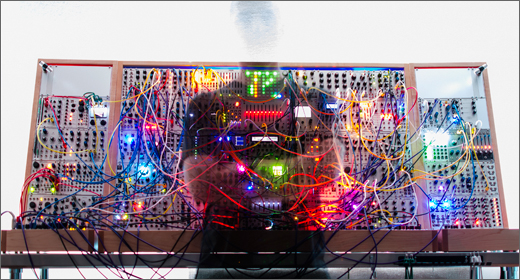
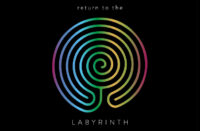


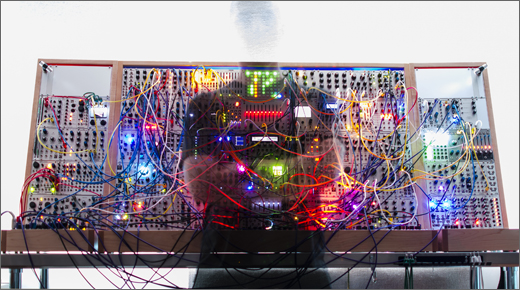
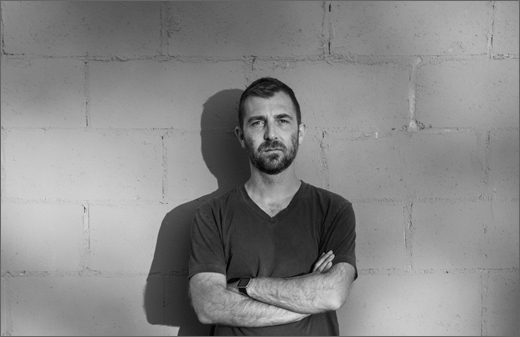
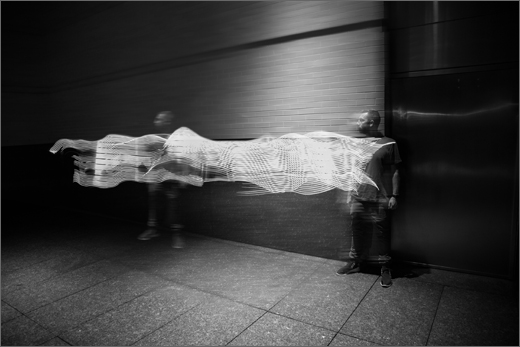
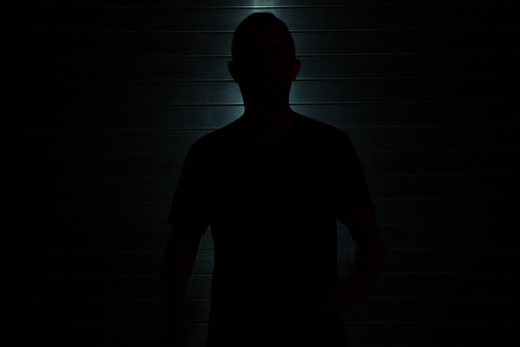













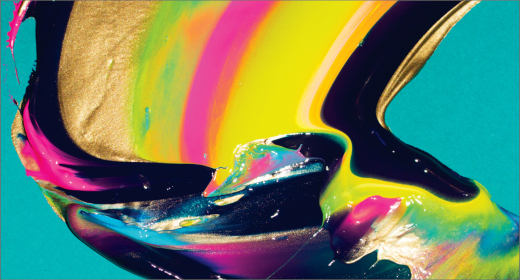
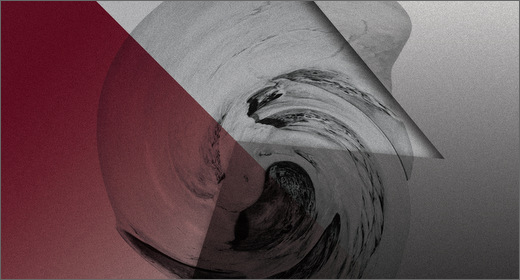
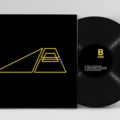
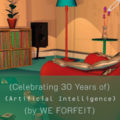
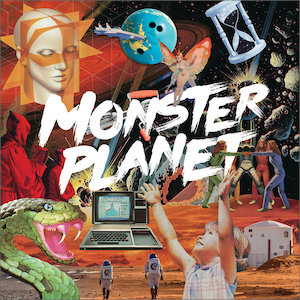

![Pole :: Tempus Remixes (Mute) — [concise]](https://igloomag.com/wp/wp-content/uploads/2025/04/pole-tempus-remixes_feat-75x75.jpg)






![Hasbeen :: Bunker Symphonies II (Clean Error) — [concise]](https://igloomag.com/wp/wp-content/uploads/2025/04/hasbeen-bunker-symphonies-ii_feat-75x75.jpg)
